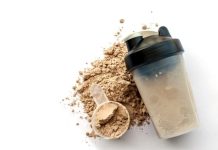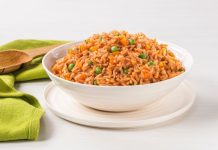Saturated fats are essential for cell integrity and enhance the immune system. Coconut oil and palm oil are good fats, heart friendly, with health benefits.
Intense lobbying by the vegetable oil industry and flawed research has resulted in the demonizing of saturated fats derived from animal sources and tropical oils such as coconut oil and palm oil. These maligned fats are blamed for raising cholesterol, arterial plaque build up and causing heart disease and stroke. Yet despite the reduction in saturated fat in the modern diet, the incidence of heart disease continues to rise. 40 percent of deaths in the US are caused by heart disease.
Renowned authority on fats, Dr Mary Enig PhD, says saturated fats and cholesterol are not the causes of heart disease. She attributes the cause to the modern diet, which includes excessive consumption of refined vegetable oils, refined carbohydrates and a deficiency in vitamin C, which is crucial for integrity of blood vessel walls, a lack of antioxidants such as vitamin E and selenium which scavenge harmful disease causing free radicals, and a reduction of saturated fats in the diet.. Saturated fats from grass fed organic meats and tropical oils such as coconut oil and palm oil have antimicrobial properties which protect you from pathogens and bacteria, which are associated with the build up of arterial plaque that cause heart disease and stroke.
Table of Contents
Good Fats Bad Fats: Butter and other Dairy Fats
Scientists and nutritionists are beginning to question the orthodox view that saturated fat from meat and dairy products cause atherosclerosis, which leads to heart problems and stroke.
In an article published in the European Journal of Nutrition in 2009, Dr Bruce German of the University of California, Davis, says the assumption that saturated fat is harmful is an oversimplification and based on flawed research. There is no clear evidence that eating dairy products increases the risk of heart disease. Like Mary Enig, he believes that other factors such as lifestyle and over consumption of refined carbohydrates present a greater risk
Butter, particularly from grass fed organic cows is a source of fat soluble vitamins, A,D,E, and K. These vitamins are important for fertility and proper growth and development of children.
In an eight year study between 1981 and 1989, researchers at the Harvard School of Public Health found that women who consistently ate low fat dairy products had a higher risk of infertility due to ovulation problems. Women who ate full fat dairy products regularly had a much reduced risk.
Butter’s stable molecular structure makes it safer to cook with. Unlike unstable vegetable oils, it does not release harmful free radicals when subject to heat.
Saturated Fats in Meat
Conjugated linoleic acid or CLA is not a saturated fat. However it is a good fat found abundantly in grass fed meat, and diary products such as milk, derived from grass fed cows. A study by the Faculty of Medicine, Uppsala University Sweden, found that CLA helps reduce body fat and may combat obesity.
Coconut Oil
Coconut oil is used extensively in South and Central America, India, Sri Lanka, Indonesia, the Philippines, Africa and the South Sea Islands.
Coconut oil is 92 percent saturated. Most of the saturated fat is in the form of medium chain triglycerides or MCTs. MCTs are metabolized by the body in a different fashion to other fats and are readily accessible as a source of energy. They are particularly useful to athletes, bodybuilders and people who workout regularly. These MCTs comprise caproic acid, caprylic acid, capric acid, lauric acid and myristic acid, which enhance the immune system. Lauric acid, which is also found in mothers milk is particularly effective in combating microbes and pathogens that harm the body.
According to the Philippine Journal of Cardiology, countries such as the Philippines, Indonesia, Polynesian Islands, India and Sri Lanka have low serum cholesterol levels and low rates of coronary heart disease. This refutes the belief that coconut oil causes heart disease. Studies which show coconut oil raises cholesterol levels used unhealthy hydrogenated coconut oil. Former president of the Philippine Heart Association, Conrado Dayritt MD, says the MCTs in coconut oil are metabolized in the liver and play no role in the biosynthesis or transport of cholesterol.
A study showed that Sri Lankans who replaced coconut oil with corn oil in their diet, had a higher ratio of low density lipoproteins or LDL to high density lipoproteins or HDL. LDL is the cholesterol which clogs up arteries. HDL, also known as good cholesterol clears the arteries of LDL and transports it to the liver where it is processed for expulsion.
Put simply, coconut oil helps protect against arterial plaque and heart disease.
A 1978 study showed one death from ischemic heart disease, per 100,000 of population in Sri Lanka, where coconut oil is the predominant fat. The rate in countries with low coconut oil consumption ranged from 18 to 187 per 100,000.
A study by the Yamanashi Medical University, Japan in 2002, suggested MCTs in coconut oil may protect the liver from toxins.
Objective research indicates coconut oil is a good fat. Some nutritionists call it the healthiest fat in the world. It is suitable for cooking and does not release harmful free radicals when subject to heat.
Palm Oil
Palm oil is another fat that may have been unfairly demonized by flawed research and lobbying by the vegetable oil industry. New research is coming to light regarding the possible health benefits of this tropical oil.
Unrefined virgin palm oil has a bright orange red color and has 15 times more carotenoids than carrots. It is rich in the antioxidants, vitamins A and E. According to research by the University of Science and Technology of China palm oil may help prevent atherosclerosis.
Research by the Palm Oil Institute of Malaysia, reported in the International Journal of Food Science Nutrition in 2000, found that the vitamin E content of palm oil may inhibit the growth of breast cancer cells.
According to research by the Oxidative Stress Research Center,Cape Peninsular University of Technology, South Africa, palm oil may help reduce oxidative stress in patients with cardiovascular disease and cancer. In spite of its high content of saturated fat, palm oil does not promote atherosclerosis and may increase levels of high density lipoproteins or good cholesterol.
It is interesting to note that palm oil is increasingly used in commercial baked goods to replace dangerous, heart disease causing trans fats or hydrogenated vegetable oil.
Palm oil is used extensively in Africa, and countries such as Malaysia and Indonesia. Like coconut oil, it contains medium chain triglycerides, including high levels of immune enhancing lauric acid. It has a stable molecular structure which makes it ideal for cooking as it does not release harmful free radicals when subject to heat. It can be kept at room temperature for months without going rancid.
Sources
- Coconut Research Center : Accessed: February 22, 2011
- Weston Price Foundation : Latest Studies on Coconut Oil : Accessed February 22, 2011
- European Journal of Nutrition: Accessed February 22, 2011
- Harvard School of Public Health: Accessed February 22, 2011
- Journal of Artheroclerosis: Accessed February 22, 2011
- American Palm Oil Council: Accessed February 22, 2011
- International Journal Food Science Nutrition: Accessed February 22, 2011
- British Journal of Biomedical Science: Accessed February 22, 2011



